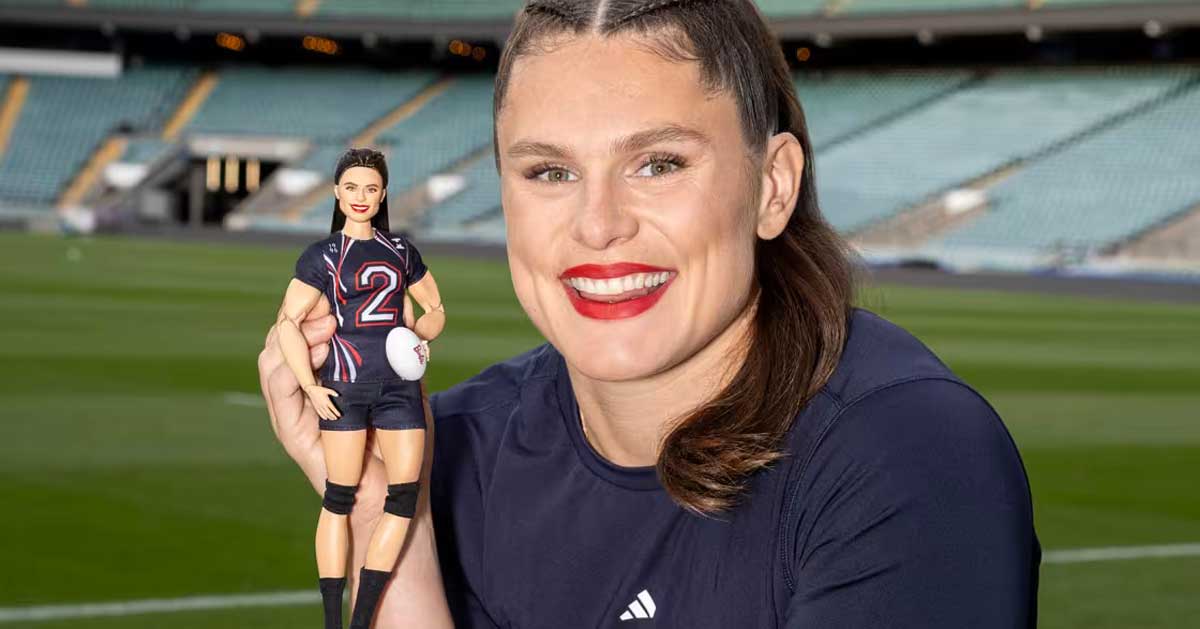Nikki Hiltz, a 29-year-old nonbinary middle-distance runner, is ready to take the Olympics — and transphobia — by storm.
Earning their ticket to Paris, Hiltz ran the second fastest time ever of any American in the women’s 1500-meter race at the U.S. Olympic Trials last month. (They will also compete in the women’s category in Paris).
Making headlines for their major milestone, Hiltz took it all in stride, posting a playful TikTok video that garnered thousands of supportive comments like “U-S-THEY.”
But that doesn’t mean it’s been easy to make history.
Hiltz, who also identifies as transgender, since they have a gender identity that doesn’t align with what they were assigned at birth, joins a small group of trans Olympians, who were first welcomed to the Games in 2004.
As trans athletes grapple with the nuanced — and often politically charged — issues of sex and gender identity in sports, Hiltz has seen their fair share of hurdles, including hateful comments, misgendering, and doubt of their genuine abilities.

But in an interview with NBC’s Kara Goucher, Hiltz just has one message for people who are confused or upset by their participation in the Games.
“It’s not about comprehension; it’s about compassion,” Hiltz said. “If someone’s asking you, ‘hey [my name is] Michael but I want to be called Mike,’ you say ‘oh okay’ and you have compassion for them. It’s the same thing. I’m in the women’s category, you know, I was assigned female at birth, but I don’t want to be called she/her. My pronouns are they/them. Like, it’s not that deep.”
Hiltz also knows first-hand how that compassion makes a difference. Their running career had already been in full swing when they came out on Transgender Day of Visibility in 2021.
“At that point, I had enough representation of other trans people to not be afraid to show up and take up space,” they told Goucher. “It was such a relief to show up as myself… the best way I describe my gender is fluid. I don’t identify as a man or woman — somewhere beyond and in between that space.”
One of the most impactful moments in their athletic career has been the sports world “catching up” and using their correct pronouns more seamlessly over the years, they said.
Hiltz told Goucher about a race they ran last year that culminated in a disappointing performance — but also a joyful realization.
“I had kind of a rough performance; I was seventh. I always like to go back and watch my races, especially when it doesn’t go my way, to be like ‘okay where can I learn? Where did I make a tactical error?’” they explained.
But when they went back to watch the race, they realized it was the first time the commentators didn’t get their pronouns wrong at all.
“They got it the whole time. It turned kind of a poor performance into such a special race,” they said.
While it was personally meaningful to Hiltz, they hope it had a greater ripple effect for anyone watching at home.
“Maybe someone is a trans person or nonbinary and wanting to go by different pronouns and, you know, that gave them the hope, like ‘oh, I can show up in my place of work and people can affirm my gender,’” they said.
“I just think sports is such a beautiful place that we’re setting the stage for what’s possible in every work environment, as well.”
Those moments in sports that exist beyond the performance of an athlete, Hiltz has demonstrated, are what move the game forward for everyone.
“It’s for the next generation,” they told Goucher in the interview.
They referred back to their mom, who grew up in an era before the enactment of Title IX and couldn’t play sports growing up.
“She grew up in a world where she didn’t see a lot of women in sports, and I grew up in a world where it’s crazy to think that a woman couldn’t play sports in college or high school,” Hiltz said.
“I want that for my kids. I want it to be so crazy to them to think, ‘What? People had pronouns and people didn’t get them right?’ or ‘Trans people weren’t allowed in sports?’ That’s what I’m pushing for. And that’s what keeps me motivated… to show up as myself.”
Header images courtesy of Nikki Hiltz and Team USA



